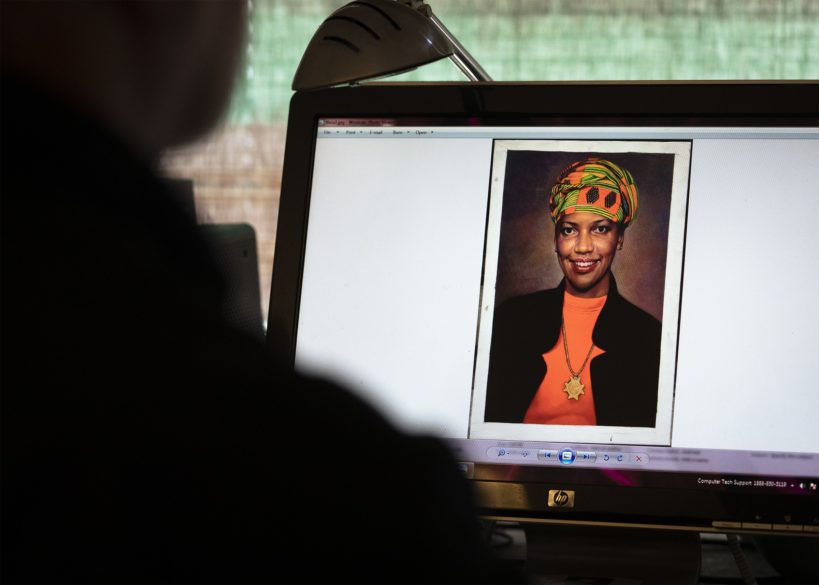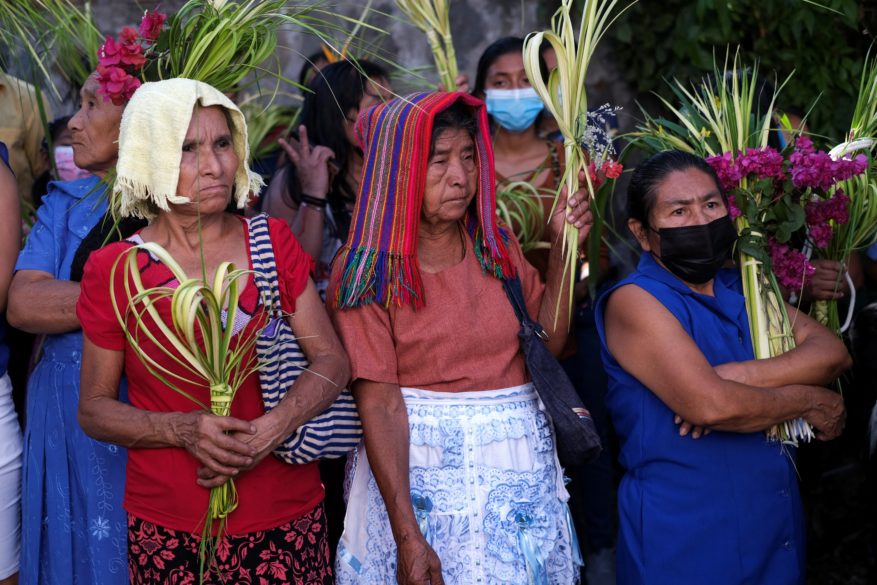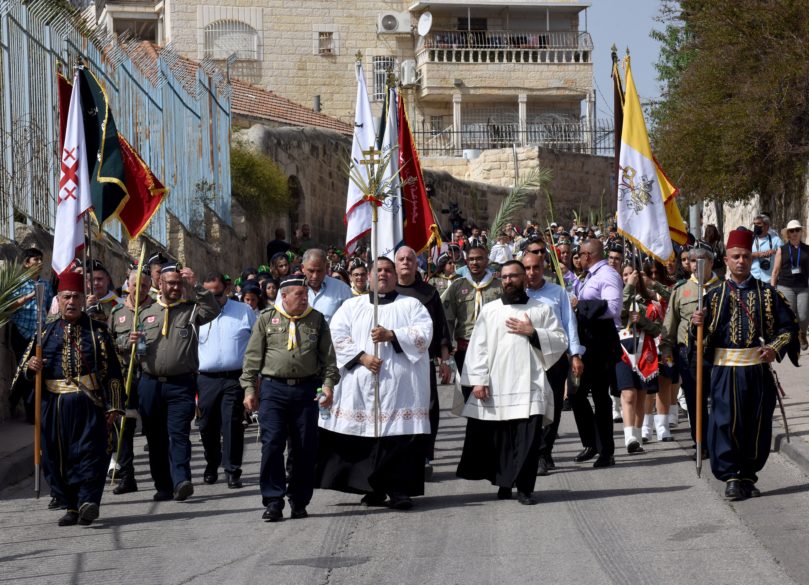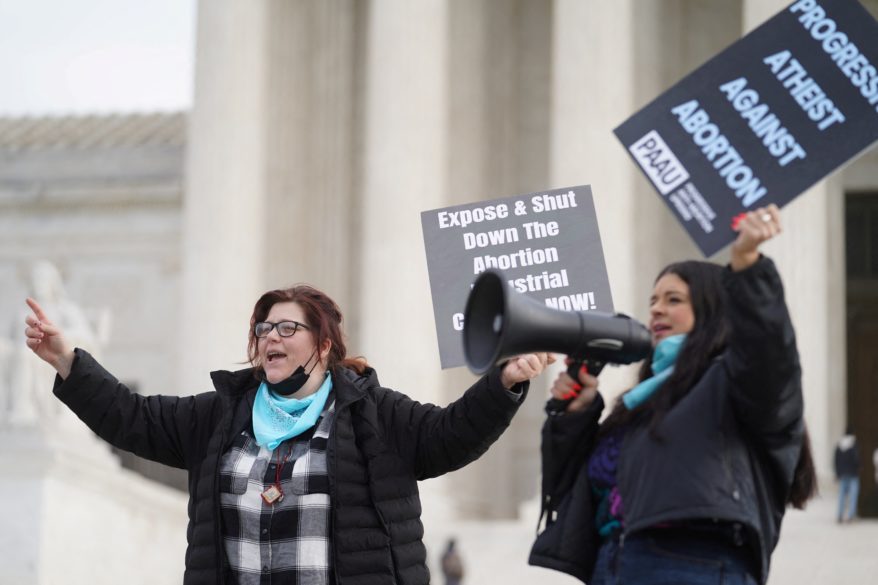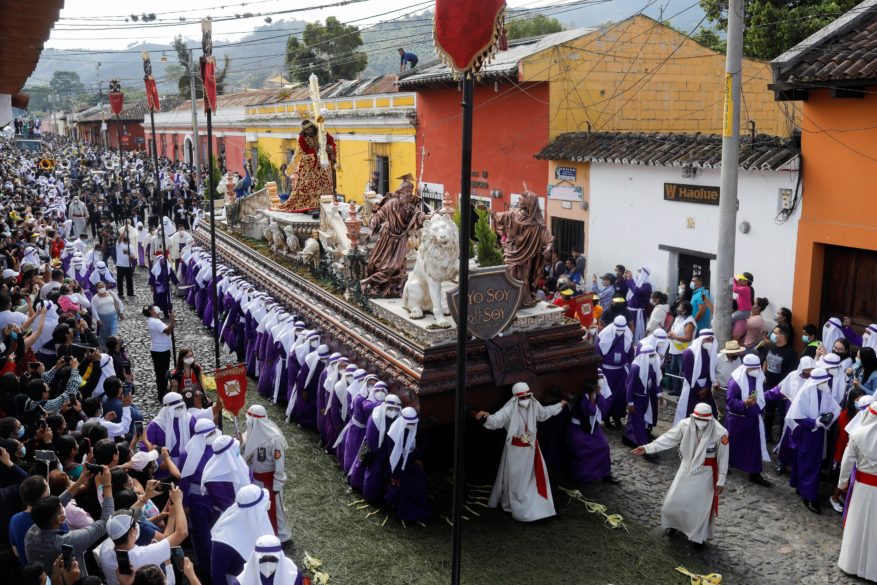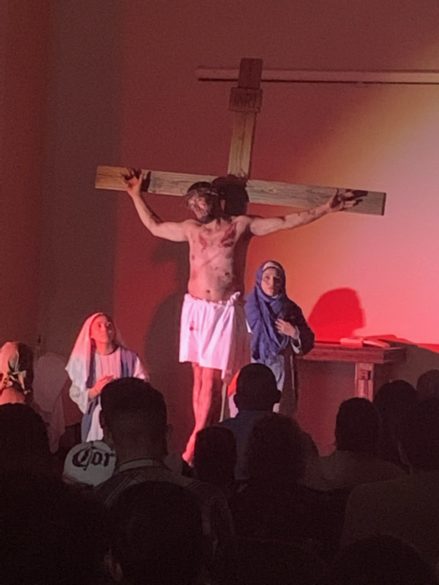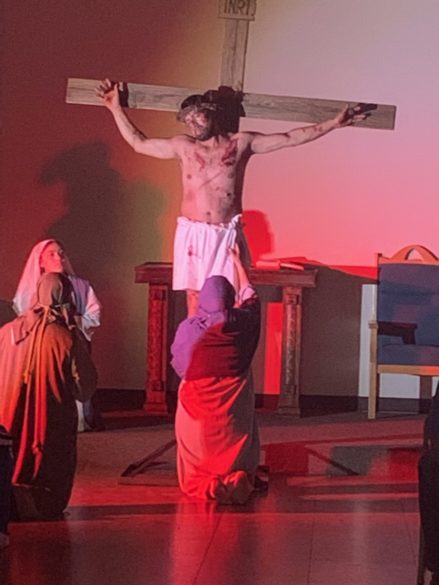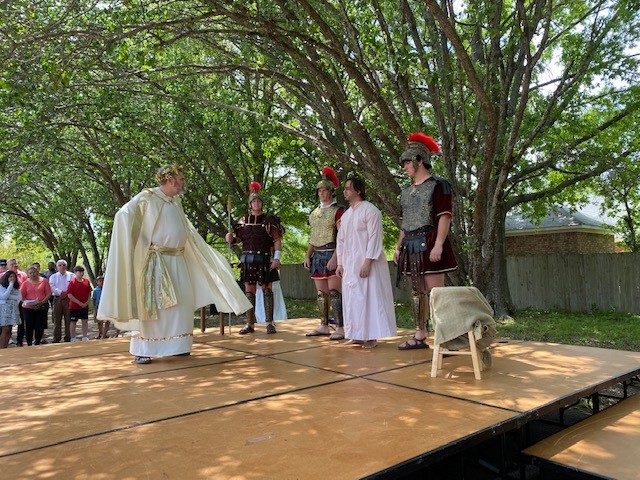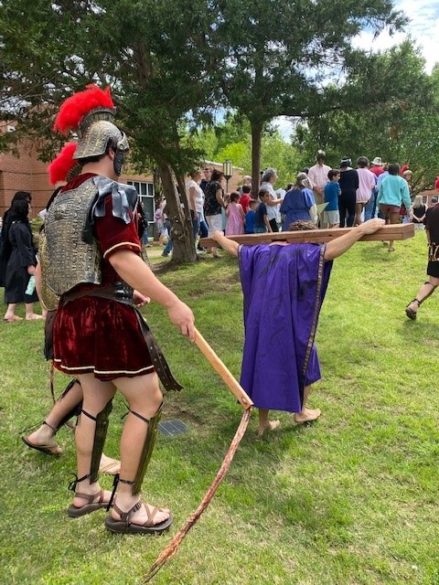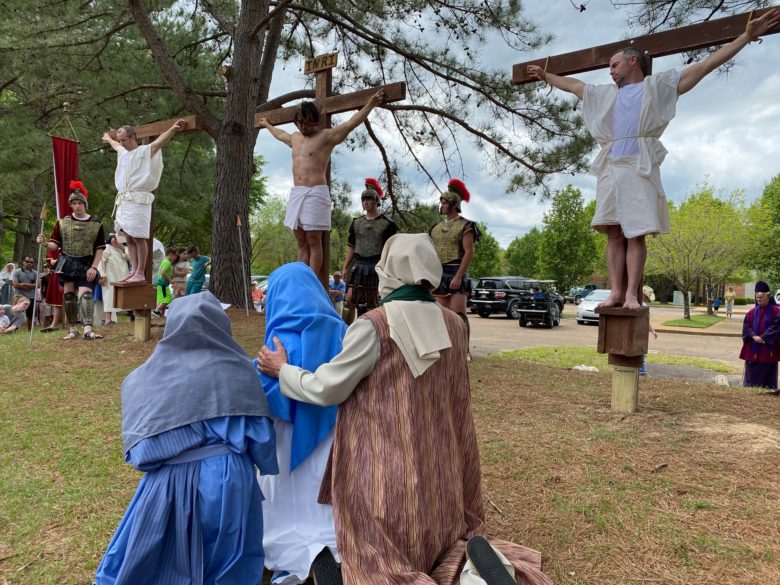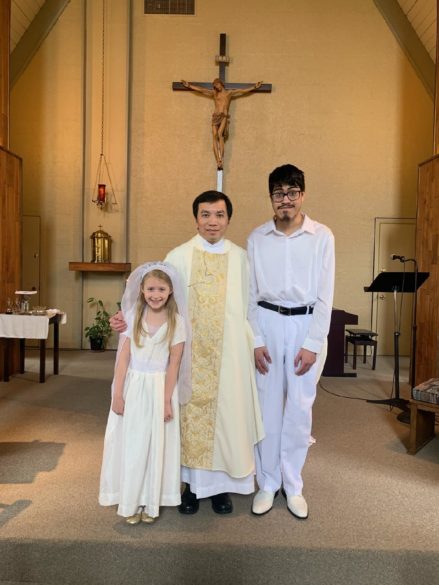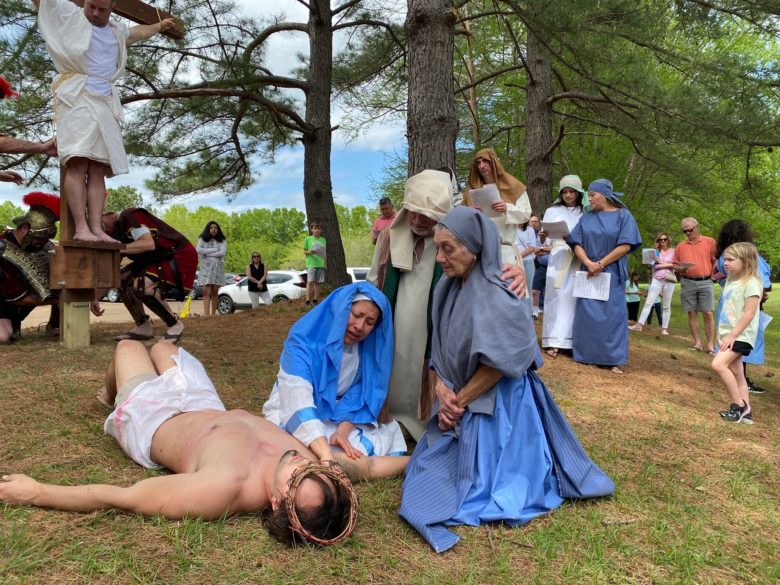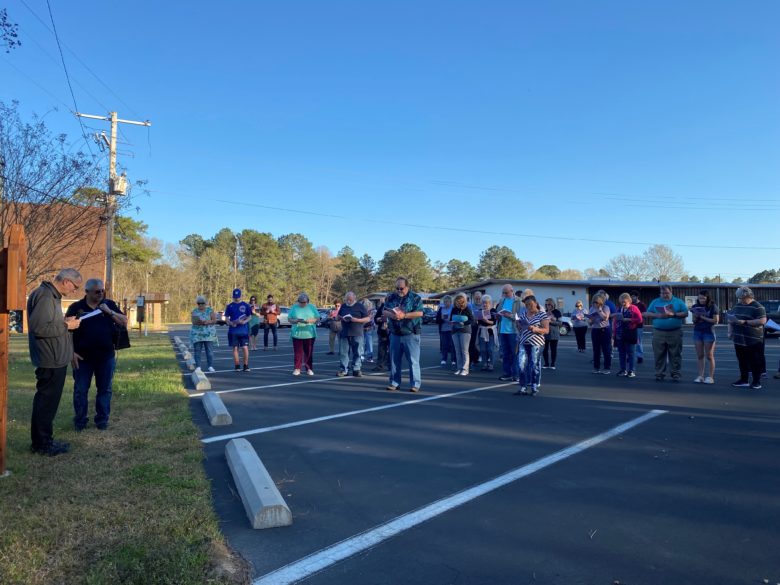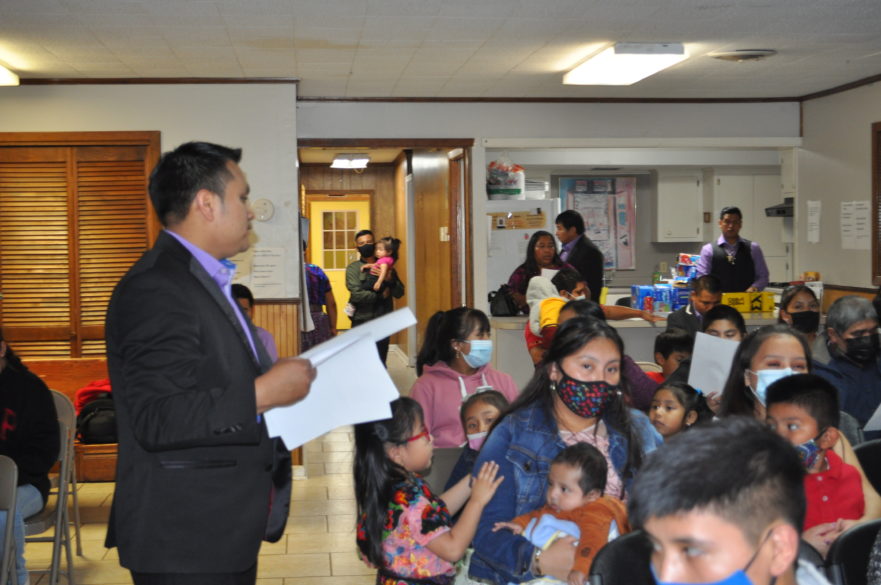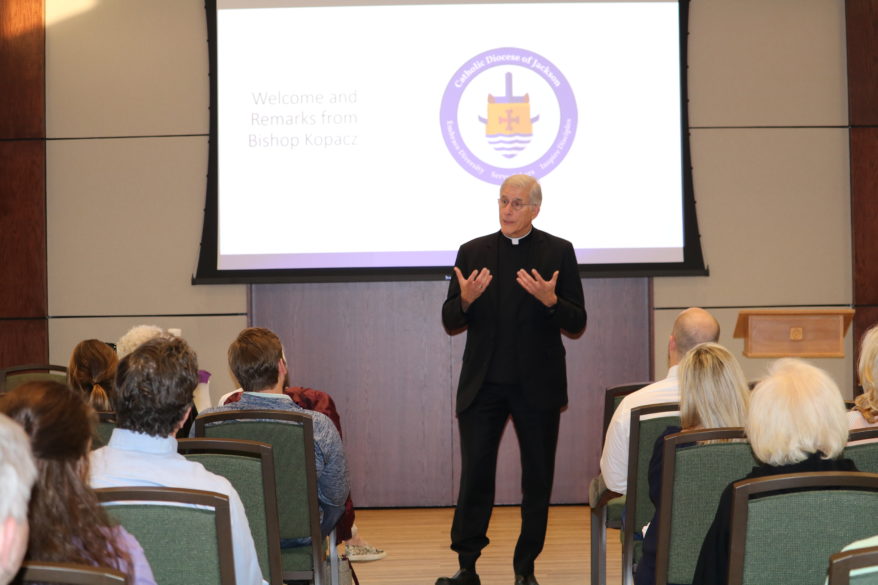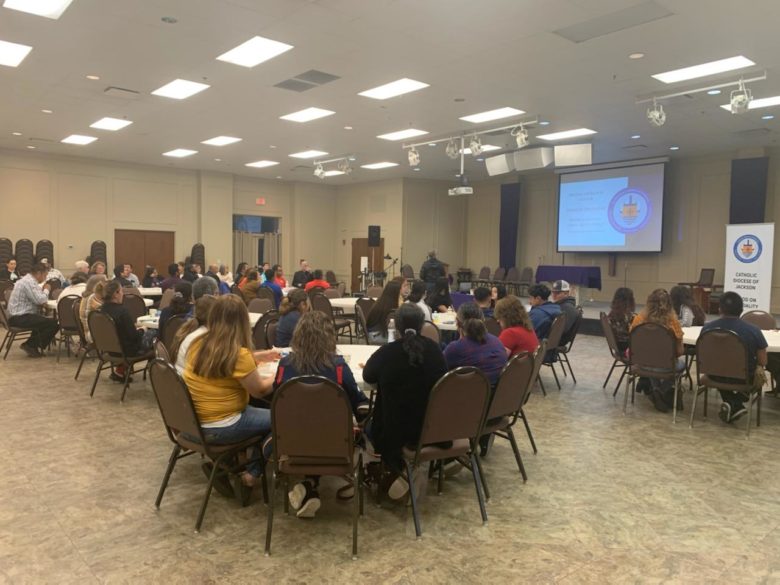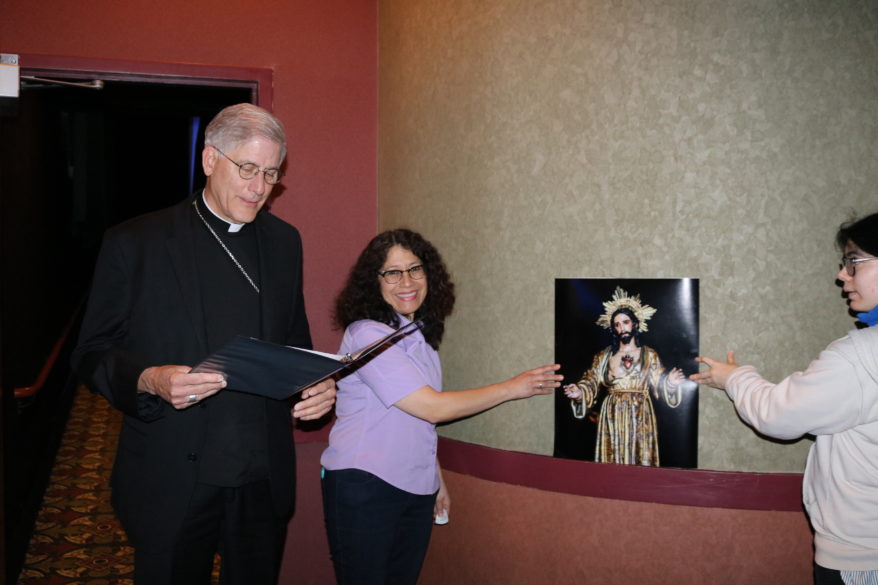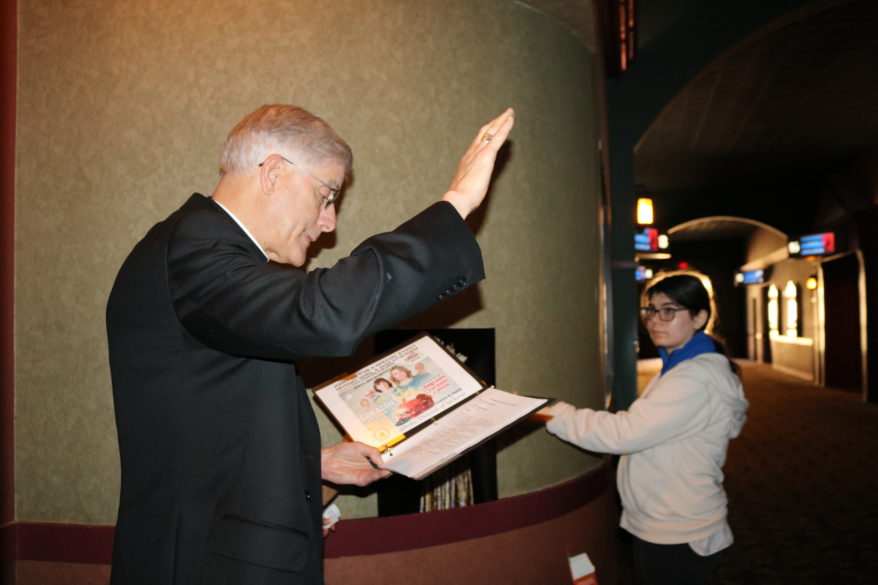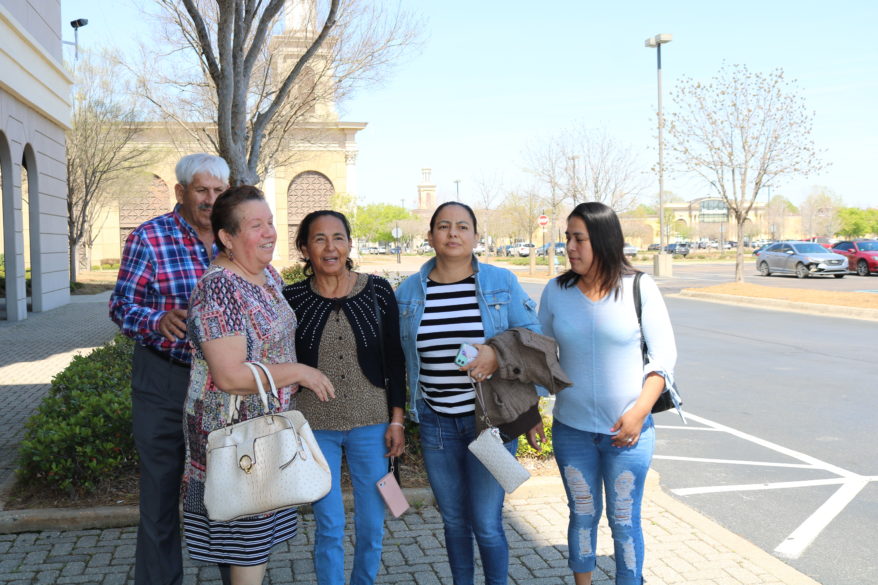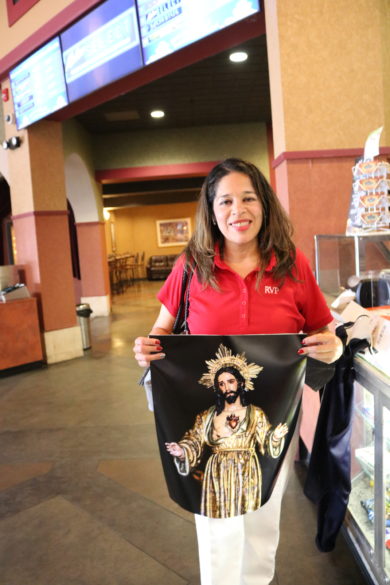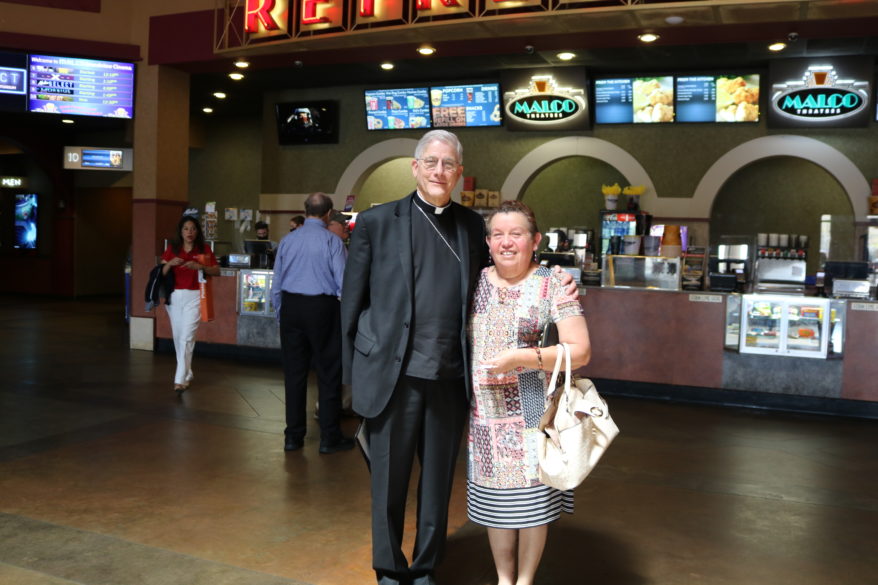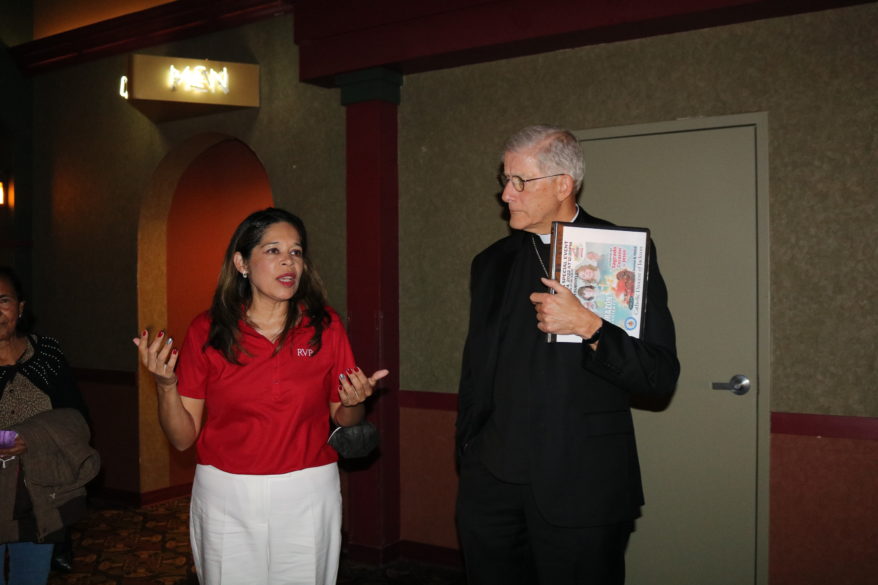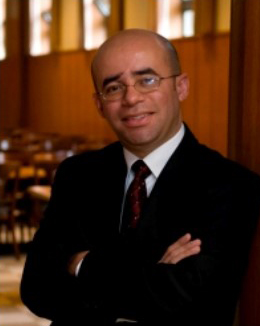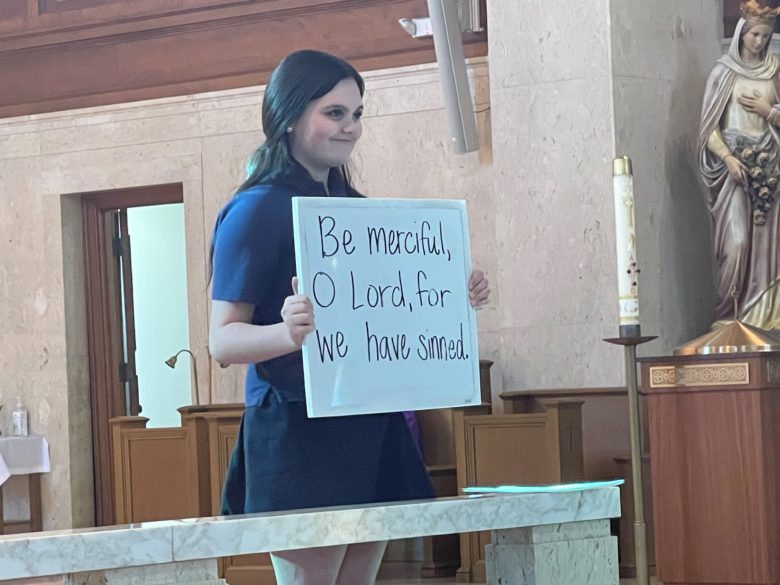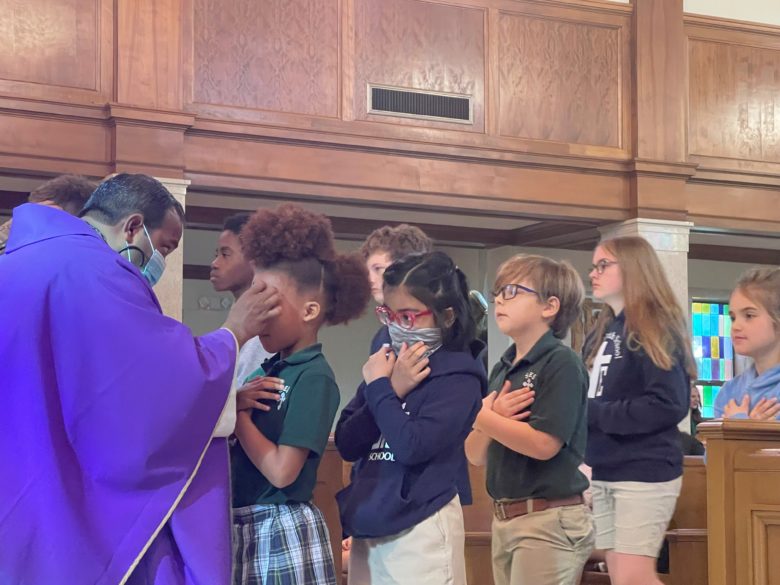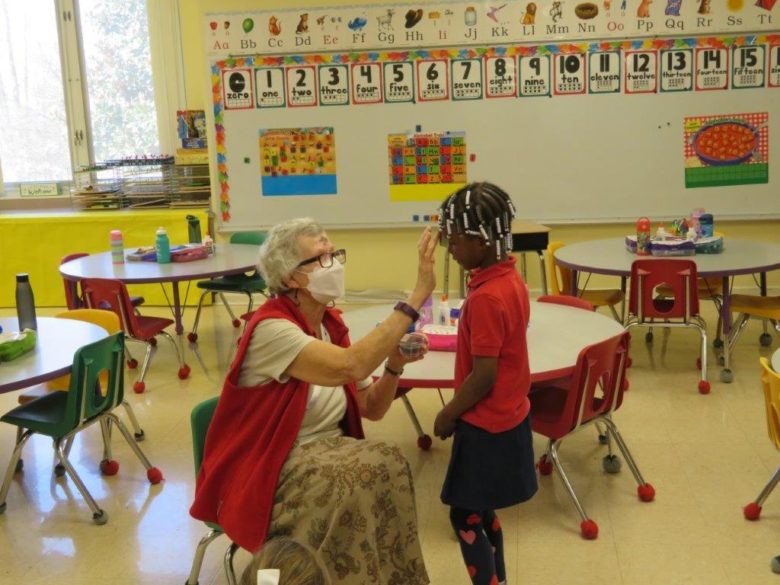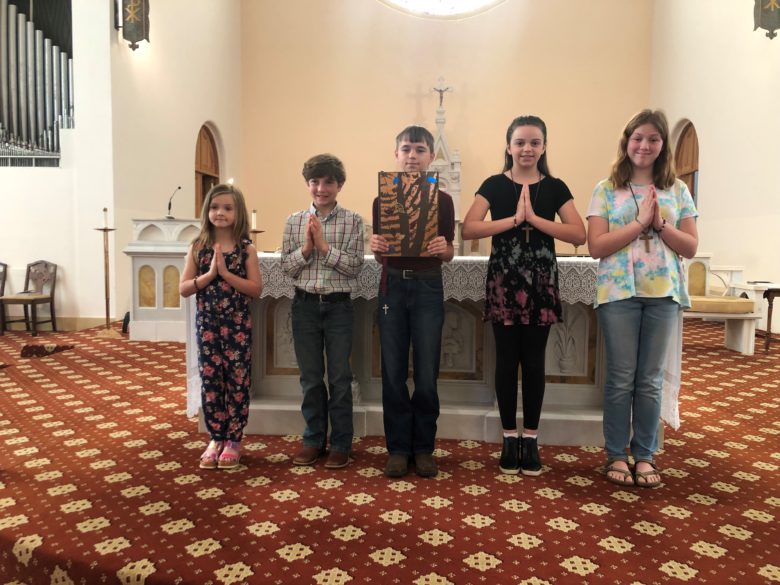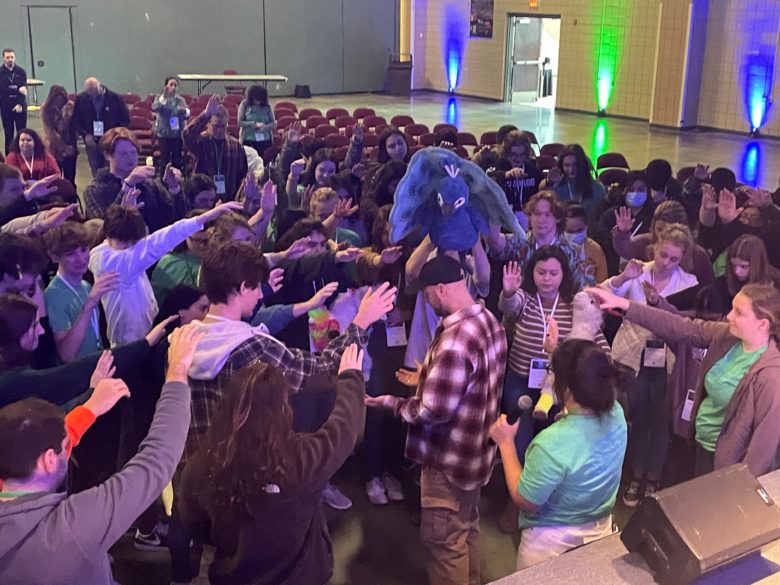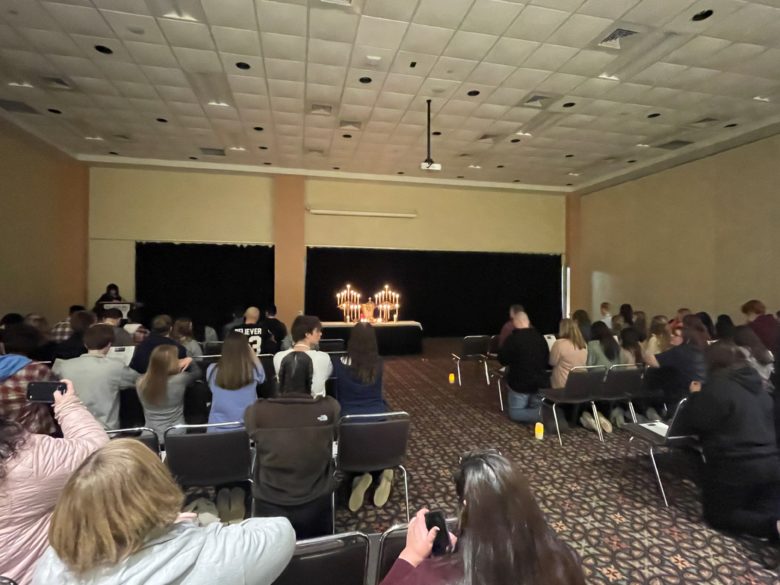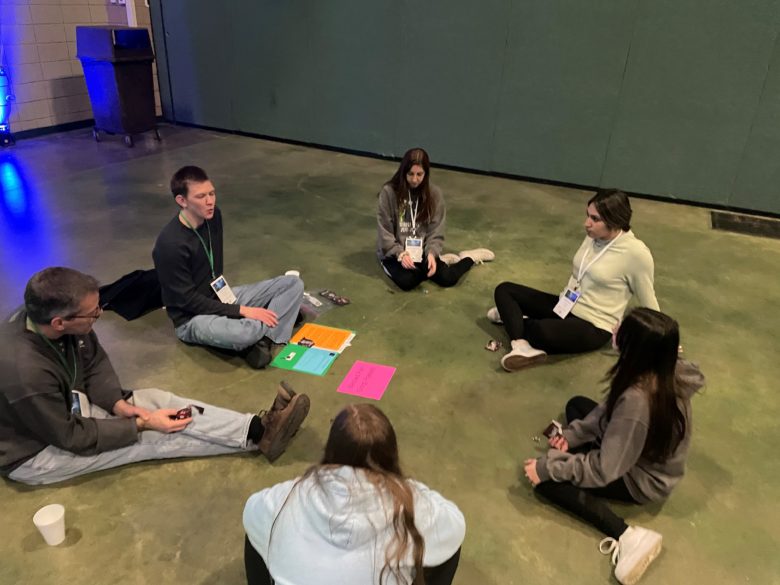Por Rhina Guidos
WASHINGTON (CNS) — Si bien algunos defensores de inmigración católicos aplaudieron el anuncio del gobierno del 1 de abril que puso fin al Título 42 — la medida de salud pública de la era de Donald Trump que mantuvo a muchos inmigrantes fuera del país durante la pandemia — otros expresaron preocupación sobre lo que sucederá en la frontera sur de Estados Unidos una vez que la disposición se levante el 23 de mayo.
“Es muy difícil predecir cómo (será) esa migración, pero estamos planificando para diferentes escenarios”, manifestó el secretario de Seguridad Nacional de Estados Unidos, Alejandro Mayorkas, durante una entrevista con CBS News el 6 de abril, donde le preguntaron si la administración de Joe Biden se estaba preparando para una posible oleada de migrantes que podría resultar de la terminación del Título 42.
Miles de migrantes han esperado meses en varios puntos fronterizos para tener la oportunidad de solicitar asilo una vez que finalice el Título 42. Algunos piensan que contrabandistas intentarán mover masas de personas hacia los cruces fronterizos, alentados por lo que reportan en las noticias.
Según algunas estimaciones, miles han sido rechazados en virtud de la disposición, que negaba la entrada a solicitantes de asilo, citando una crisis de salud pública.
Los republicanos aprovecharon esta oportunidad para atacar al presidente Joe Biden y a los demócratas antes de las elecciones de mitad de período en noviembre, describiéndolos como promotores de caos en la frontera.

El líder de la minoría del Senado, Mitch McConnell, republicano de Kentucky, dijo el 24 de marzo que el levantamiento del Título 42 “llevaría nuestra frontera de su estado actual de caos a un nivel completamente nuevo de colapso total”. Algunos informes en abril dijeron que los republicanos han estado alentando al gobernador de Texas, Greg Abbott, a declarar cualquier oleada resultante del levantamiento del Título 42 como una “invasión” y desplegar a la Guardia Nacional y otras autoridades para responder.
Sin embargo, ahora, algunos demócratas también están generando preocupaciones.
Aunque funcionarios de la administración de Biden consideraron el Título 42 como una medida de salud al explicar por qué decidieron no eliminarlo después de que Biden asumiera la presidencia, los miembros del Partido Demócrata hablaron sobre la suspensión de la disposición con evidente preocupación.
“Hasta que haya un plan, hay que tener fronteras seguras. Hacer algo que podría invitar a duplicar, triplicar, cuadruplicar los números en la frontera, eso no es lo mejor para Estados Unidos, eso no es lo mejor para la administración, o las personas que están tratando de pasar por el proceso”, señaló el senador Mark Warner, demócrata de Virginia, en una entrevista con CNN el 31 de marzo.
El senador Joe Manchin de West Virginia y los senadores Kyrsten Sinema y Mark Kelly de Arizona, todos demócratas, han expresado puntos de vista similares.
El secretario de Estado de Estados Unidos, Antony Blinken, pareció decir en CNN el 3 de abril que, en vez de mantener una puerta abierta para dar la bienvenida a inmigrantes — que es lo que muchos defensores de inmigrantes católicos han pedido — los esfuerzos de la administración, durante algún tiempo, se han centrado en evitar que los inmigrantes dejen sus países de origen. Lo llamó un enfoque en el “derecho a permanecer” en casa.
“Nos enfocamos en asegurarnos de que las personas en todo nuestro hemisferio tengan oportunidades en casa en el futuro para que no se enfrenten a esta decisión realmente difícil de dejar todo atrás e intentar venir a Estados Unidos”, indicó.
Blinken encomendó a los gobiernos de los países centroamericanos instrumentar medidas no solo para mantener a sus ciudadanos en casa, sino también para evitar que otros migrantes avancen hacia Estados Unidos a través de sus fronteras.
“En el corto plazo, el enfoque que tengo es tratar de asegurarme de que los países de tránsito, en particular, tomen medidas para garantizar que . . . las personas que podrían intentar ingresar a Estados Unidos a través de sus países no puedan hacerlo,” acotó.
La práctica es similar a algo que se intentó durante la administración de Trump, que proporcionó incentivos económicos a países como México para evitar que los migrantes avanzaran hacia Estados Unidos.
Sin embargo, con la corrupción que permanece en los niveles más altos de gobierno en los países del llamado Triángulo Norte de Guatemala, Honduras, y El Salvador, el alto desempleo, la violencia, y el aumento de los costos debido a la pandemia de coronavirus, mucha gente ha decido que es mejor irse que quedarse.
Durante los años de Trump, parte de la disuasión fronteriza se enfocó en parar a migrantes en las fronteras de países cercanos a los EE.UU., lo que provocó enfrentamientos entre los migrantes y las autoridades en los cruces. También llevó a los contrabandistas a trasladar a los migrantes por caminos menos transitados — pero más peligrosos — lejos de las autoridades.
En una declaración del 5 de abril que celebraba el fin del Título 42, el obispo auxiliar de Washington Mario E. Dorsonville, presidente del Comité de Migración de los obispos católicos de Estados Unidos, advirtió que cualquier aumento de migrantes que pueda surgir en la frontera no será producto de la suspensión de la medida sino el resultado de las condiciones que enfrentan muchos migrantes en sus países de origen.
“Seamos claros: cualquier aumento percibido o real de migrantes vulnerables que buscan refugio en nuestra frontera en los próximos meses no será un resultado directo de este cambio”, dijo. “Muchos ya están en nuestra puerta, habiendo sido obligados a languidecer en México por un período de tiempo indefinido, incapaces de aprovechar la oportunidad de buscar protección de acuerdo con las leyes estadounidenses e internacionales”.
Él dijo que la persecución, la violencia, los desastres naturales, “y otras causas fundamentales de la migración” seguirán impulsando a masas de personas. Las condiciones insostenibles, no una disposición, “obligan a las personas a buscar protección hasta que se realicen esfuerzos más sólidos para abordarlas”, dijo.
Sin embargo, funcionarios del gobierno de Biden, después de ver llegar altos números de migrantes a la frontera a principios de 2021, parecían decididos a transmitir un mensaje claro que Kamala Harris inicialmente presentó en junio de 2021, durante su primera visita a la región como vicepresidenta de Estados Unidos: “No vengan”.
Lo que será diferente, prometen los funcionarios de la administración de Biden, es el trato que recibirán los migrantes, incluso si no obtienen el resultado que desean.
“Lo que nos distingue del pasado es el hecho de que no implementaremos políticas de crueldad ni ignoraremos nuestras leyes de asilo”, expresó Mayorkas en su entrevista con CBS. “Estamos reconstruyendo un sistema que fue completamente desmantelado”.
Cuando se le preguntó si existe un doble estándar que permite que los refugiados ucranianos que comienzan a aparecer en la frontera ingresen a Estados Unidos, Mayorkas respondió: “No lo hay”.
“Entonces, lo que hacemos, de forma individualizada, es evaluar si una familia ucraniana y, francamente, otras familias de otros países, califican para nuestra autoridad discrecional de otorgar libertad condicional humanitaria”, dijo a CBS. “Y eso no es específico solo para los ucranianos. Lo aplicamos en todos los ámbitos”.

